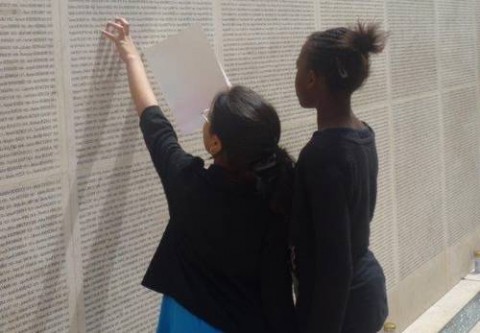
GCED Basic Search Form
Quick Search
You are here
News

UNESCO ‘s policy guide on Education about the Holocaust and preventing genocide provides effective responses and a wealth of recommendations for education stakeholders who wish to engage in or to reinforce this education.
The publication will serve as a resource for policy-makers, curriculum developers, textbooks writers and publishers, and teacher educators. It suggests key learning objectives for education about the Holocaust, as well as topics and activities aligned with educational frameworks relevant to Global Citizenship Education, a priority of the 2030 Education Agenda and a pillar of the Sustainable Development Goal 4 on Education.
The policy guide shows how education about the Holocaust, and more broadly genocide and mass atrocities, can meet some of the world's educational policy priorities. It also provides policy-makers with rationales to teach about the history of genocides in a variety of contexts. The policy guide identifies key areas of implementation: curricula, textbooks, professional development, classroom practices, cooperation with museums, memorials and the civil society, adult education, and commemorative activities.
The new publication builds on the expertise of many Holocaust and genocide related organizations, including the United States Holocaust Memorial Museum. It contains various links to historical and educational resources relating to several cases of genocides and mass atrocities and explains how they can be taught. The guide focuses primarily on the history of the genocide of the Jewish people by Nazi Germany and its collaborators. Some principles and policies outlined are applicable to other cases of genocide and mass atrocities.
Examining difficult pasts such as the Holocaust has a powerful impact on young people because it helps learners identify the roots of prejudice and enhance their critical thinking against racism, antisemitism and all forms of prejudice. It allows them to navigate moral dilemmas of the past as well as of the present, and reflect on their role as citizens to protect and uphold human rights.
As people commemorate Yom HaShoah, UNESCO encourages programmes that strengthen a culture of prevention and foster understanding of the causes and consequences of the Holocaust and how genocide can happen.
